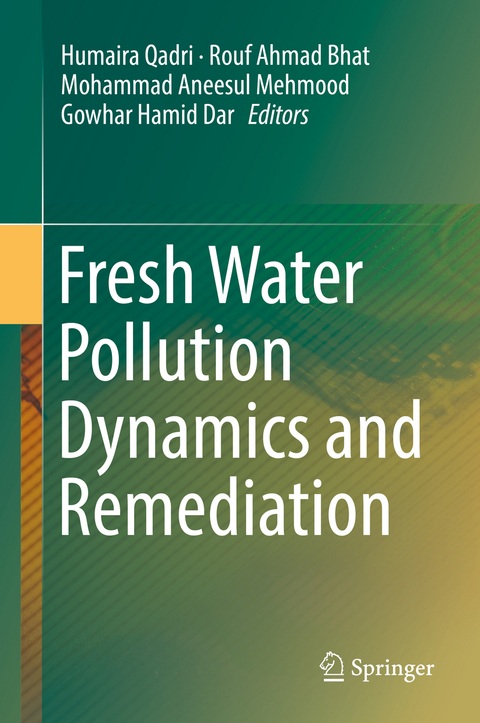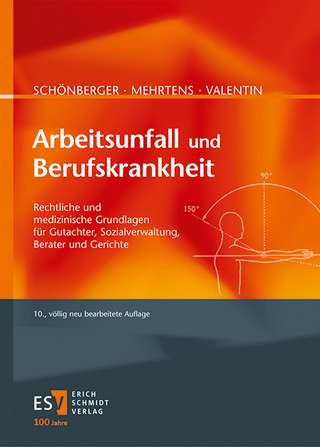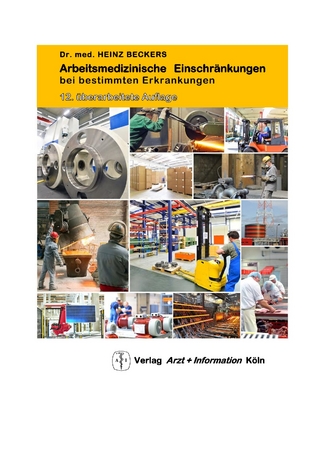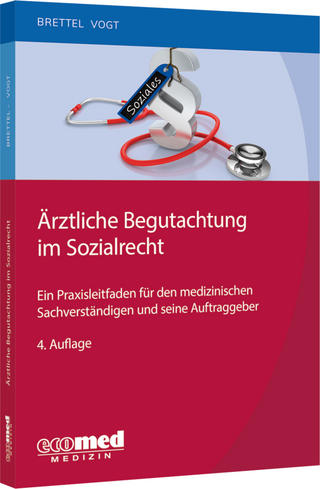
Fresh Water Pollution Dynamics and Remediation
Springer Verlag, Singapore
978-981-13-8276-5 (ISBN)
The book provides an understanding about the present state of art, pollution impacts including the changes in the environmental quality as well as the shift in the aquatic biological communities of the fragile freshwater ecosystems. Besides, the impact of deteriorating quality of the freshwater ecosystems on the animal and human health is also discussed in detail. This book provides a comprehensive account of the techniques based on updated research in biotechnology, bio-remediation, phyto-remediation and nano-bioremediation. The role of biosorpers and biofilms as a remediation tool has also been detailed. The book is a ready reference for researchers, scientists and educators who are involved in the freshwater pollution, remediation and management studies.
The book editors with an expertise in diverse research fields in freshwater ecosystems have congregated the most inclusive research accounts on the freshwater pollution and remediation and thus developed a repository of diverse knowledge on the subject
Dr. Humaira Qadri is heading the department of Environment & Water Management and is teaching in the Post Graduate Department of Environmental Science in Sri Pratap College Campus, Cluster University Srinagar, J&K. She has her specialisation in limnology, nutrient dynamics and phytoremediation. Dr. Qadri has published scores of papers in international journals and has a more than 10 books with national and international publishers. She is also the reviewer of various international journals. She is guiding a number of research students for Ph.D program and has supervised more than 50 Master’s dissertations. She is the Principal Investigator of some major and minor research projects on phytoremediation. A gold medallist at her Master’s level, she has bagged a number of awards and certificates of merit. With a number of national scientific events to her credit she also has been on the scientific board of various international conferences. Dr. Qadri is an active participantin national and international scientific events and has organised a number of national conferences on science. She holds the life memberships of various international organisations as well. Dr. Rouf Ahmad Bhat has his specialisation in Limnology, Toxicology, Phytochemistry and Phytoremediation. Dr. Bhat has been teaching graduate and post graduate students for the past two years. He is an author of more than 50 scientific articles and 15 book chapters, and has published 09 books with international publishers. He has presented and participated in numerous State, National and International conferences, seminars, workshops and symposium. Dr. Bhat has worked as an associate Environmental Expert in World Bank funded Flood Recovery Project and also Environmental Support Staff in Asian Development Bank funded development projects. Dr. Bhat has received many awards, appreciations and recognitions for his services to the science of water testing, air and noiseanalysis. He has served as editorial board member and reviewer of reputed international journals. Dr. Bhat is currently working as assistant professor and is still writing and experimenting with diverse capacities of plants for use in aquatic pollution. Dr. Mohammad Aneesul Mehmood has his specialisation in limnology and environmental toxicology. He completed his doctorate from the Division of Environmental Science, SKUAST- K with meritorious certificate from the university. He received Dr. Mumtaz Ahmad Khan Gold Medal and Shri Bhushan Memorial Gold Medal for being a topper during his master’s programme. He has qualified various national competitive tests in the discipline of Environmental Science. He was also awarded with INSPIRE merit fellowship (JRF & SRF) by the department of Science and Technology, GoI during his doctoral programme. He has been teaching graduate and post graduate students for the past two years in the Department of Environmental Science, School of Sciences, Sri Pratap College campus, Cluster University Srinagar. J&K, India. He has been supervising many students for their M. Sc. projects. He has a number of publications in international journals of repute and a number of books with international publishers. Dr. Gowhar Hamid Dar is currently working as an Assistant Professor in Environmental Science, Sri Pratap College, Cluster University Srinagar, Department of Higher Education (J&K). He has a PhD in Environmental Science with specialisation in Environmental Microbiology (Fish Microbiology, Fish Pathology, Industrial Microbiology, Taxonomy and Limnology). He has been teaching graduate and post graduate students for the past many years. He has more than 40 papers in international journals of repute and a number of books with international publishers. He is guiding a number of students for master’s thesis.He has been working on the Isolation, Identification and Characterization of microbes, their pathogenic behaviour and impact of pollution on development of diseases in fish fauna for the past several years. He has received many awards and appreciations for his services towards the science and development. Besides, he is also the acting member of various research and academic committees.
The Concerns for Global Sustainability of Freshwater Ecosystems.- Freshwater Pollution: Effects on Aquatic Life and Human Health.- Freshwater contamination: sources and hazards to aquatic biota.- Correlation Between Pollution Trends of Freshwater Bodies and Bacterial Disease of Fish Fauna .- Impact of Pollution on Quality of Freshwater Ecosystems.- Heavy metal intrusion and accumulation in aquatic ecosystems.- Impact of climate change on freshwater ecosystem and its sustainable management.- Role of biotools in restoration of freshwater ecosystems Bioremediation.- A Sustainable and Emerging Tool for Restoration of Polluted Aquatic Ecosystems.- Biosorption as Environmentally Friendly Technique for Heavy Metal Removal from Wastewater.- Biotechnological interventions as an aquatic clean up tool.- Analysis of hydrology, sediment retention, biogenic-calcification and -scavenging as self-remediative lacustrine functions.- Remediation of pesticides through microbial and phytoremediation techniques.- Trends in Phyto-management of Aquatic Ecosystems and Evaluation of Factors Affecting Removal of Inorganic Pollutants from Water Bodies.- Urban Pond Ecosystems: Preservation and Management Through Phytoremediation.- Aquatic Pollution Stress and Role of Biofilms as Environment Cleanup Technology.- Wonders of Nanotechnology for Remediation of Polluted Aquatic Environs
| Erscheinungsdatum | 07.08.2019 |
|---|---|
| Zusatzinfo | 30 Illustrations, color; 19 Illustrations, black and white; XV, 339 p. 49 illus., 30 illus. in color. |
| Verlagsort | Singapore |
| Sprache | englisch |
| Maße | 155 x 235 mm |
| Themenwelt | Medizin / Pharmazie ► Medizinische Fachgebiete ► Arbeits- / Sozial- / Umweltmedizin |
| Naturwissenschaften ► Biologie ► Ökologie / Naturschutz | |
| Naturwissenschaften ► Geowissenschaften ► Hydrologie / Ozeanografie | |
| Technik ► Umwelttechnik / Biotechnologie | |
| Schlagworte | bioremediation • Ecosystems • Fresh water • pollution • restoration |
| ISBN-10 | 981-13-8276-X / 981138276X |
| ISBN-13 | 978-981-13-8276-5 / 9789811382765 |
| Zustand | Neuware |
| Haben Sie eine Frage zum Produkt? |
aus dem Bereich


